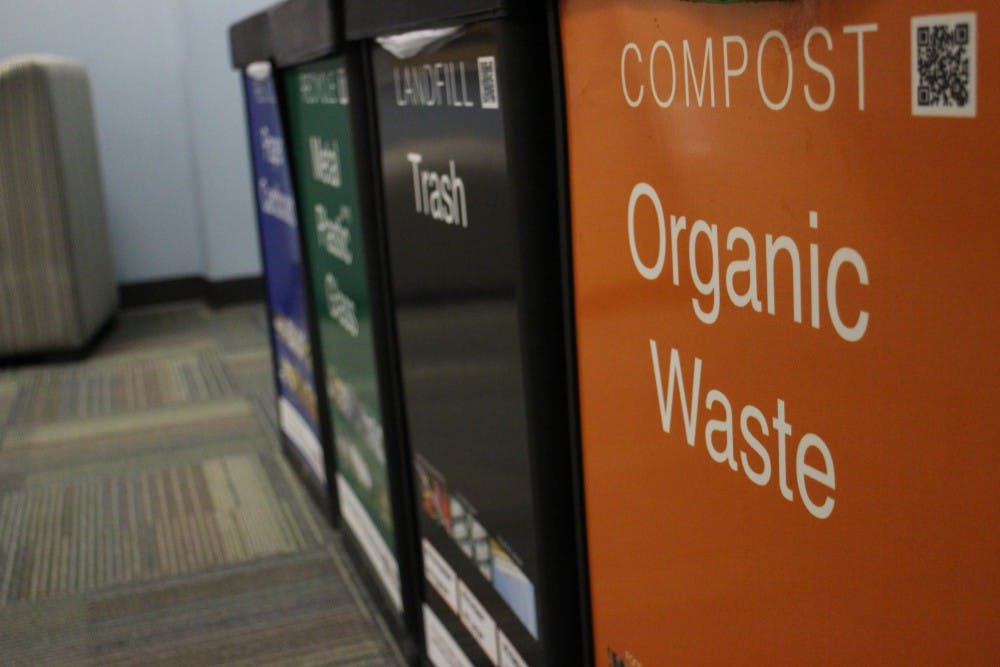AU has, for the third time, entered into Recyclemania. Recyclemania is a national contest that urges universities across the United States to reaffirm their commitment to reducing their carbon footprints through maximizing the amount of trash recycled on campus.
AU has a mixed history with composting after ceasing all efforts in 2014 after the Delaware facility where compost was sent shut down. It took three years for AU to find Veterans Compost, a facility in Prince George’s County, Maryland, that was willing to accept our compost. The facility previously deemed our compost as being “too contaminated” to fit pass its zero contamination tolerance policies. Now that we have restarted composting, AU has joined the “recycle mania,” doubling down on our zero waste goals.
Although Hannah Debelius, a full-time faculty member in the office said, “We have our work cut out for us,” and an AU sustainability student educator was quoted saying, “We will probably perform very badly,” such a lackluster response from the University, particularly the Office of Sustainability, may highlight deeper issues within the office that are reflected in the campus community.
AU thrives on accepting students that not only bring diverse experiences, but also have the demonstrable potential to contribute to university-wide goals and visions, such as sustainability. Incoming freshmen are repeatedly faced with the topic of sustainability before and upon their arrival to school, but the urgency seems to stop there.
Many new students are wholly unaware of our history with composting and don’t realize that our regained ability to compost through Veterans Compost is a rare and stipulated second-chance. Given that the colorfully marked trash bins remained but the underlying program structure had crumbled between 2014 and 2017, even current students were left relatively in the dark as to the status of our composting. With trash bins remaining littered about our campus with no clear organizational structure dictating their placement nor process, students have been unsure of their own duty in the challenge to create an environmentally sustainable campus community. While students do have a non-transferable responsibility to recycle properly according to bin, a renewed synergy between campus layout, campus community and the Office of Sustainability would present us all with a radically different outlook on our progress with our University’s zero waste goals as well as the current Recyclemania contest.
There are four full-time sustainability employees at AU for the thousands of students living on campus, and an unclear leadership structure within that group of employees to effectively stimulate, facilitate and maintain interest in pursuing sustainability on campus. It is short-sighted to blame students for incorrectly organizing their waste without acknowledging that recycling is in fact very much a cultural thing that cannot be maintained by a one-semester hype for incoming freshman. AU does a solid job of stimulating interest. Now, administrators and campus partners must work on facilitating and maintaining these habits so we can accomplish the work set before us and meet our zero waste goals.
-E





